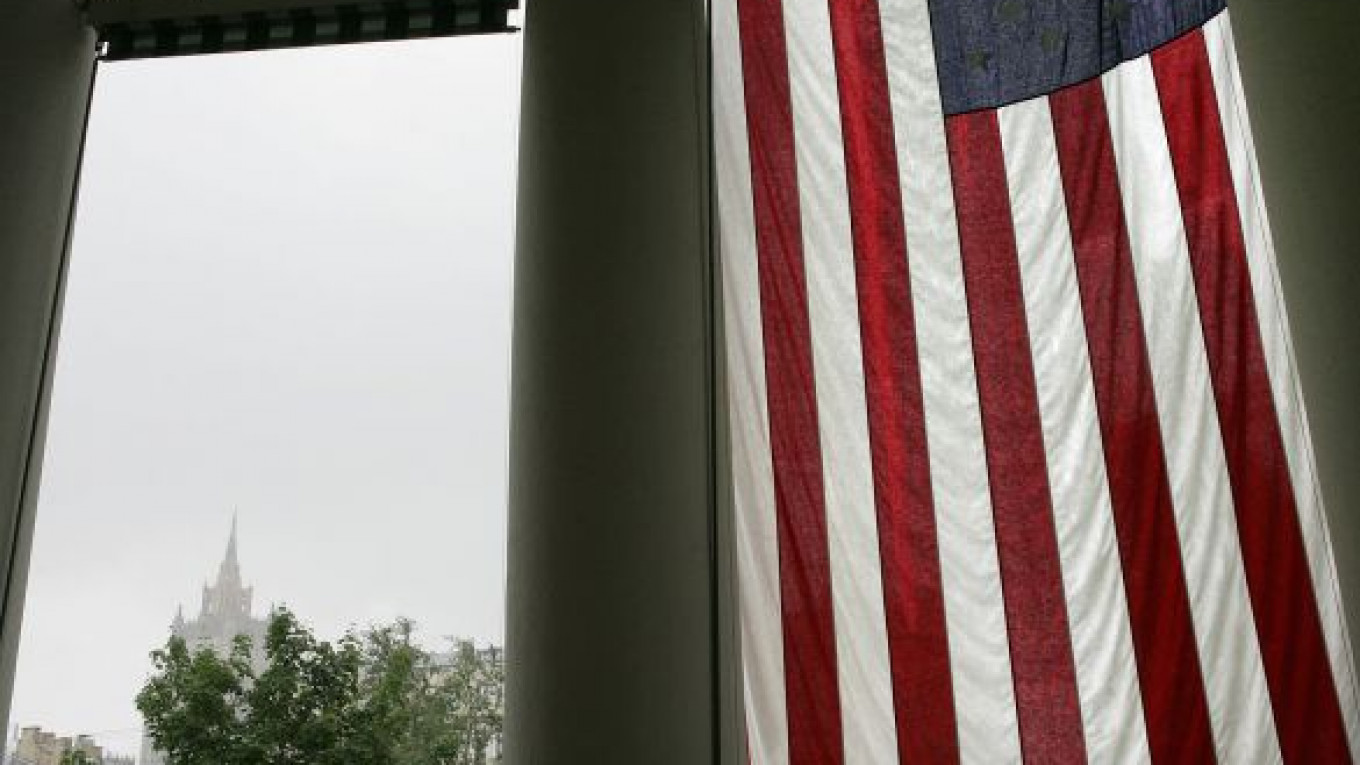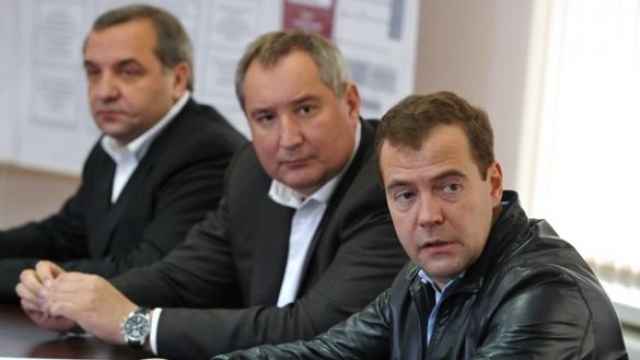The Foreign Ministry on Thursday complained that it had not been properly informed by United States authorities that a group of Russian citizens had been arrested on charges of smuggling microelectronics, raising “serious concerns” for Russia.
“A lot is unclear in this story. It raises serious concerns, and we are counting on U.S. authorities to protect the rights and interests of the Russian citizens who have been arrested and face these charges,” Deputy Foreign Minister Sergei Ryabkov told journalists, Interfax reported.
Ryabkov said diplomats had so far met with one of the eight suspects arrested on charges of illegally exporting U.S. military technologies to Russian defense and intelligence agencies. Eleven people are accused of taking part in the scheme.
But Russian authorities also noted that the suspects had not been charged with spying, a statement analysts interpreted to mean that Moscow does not intend to turn the case into a major point of contention with Washington.
Foreign Minister Sergei Lavrov said his ministry is still sorting out who among the defendants are Russian citizens. Media reports said that one of the defendants, Alexander Posobilov, has dual Russian-Azeri citizenship, and U.S. court papers said that suspect Alexander Fishenko has both U.S. and Russian passports.
According to an FBI indictment made public Wednesday, Fishenko and his co-defendants are suspected of violating strict U.S. laws on the export of advanced technologies.
"The defendants tried to take advantage of America's free markets to steal American technologies for the Russian government," Loretta Lynch, U.S. Attorney in Brooklyn, said in a statement.
Fishenko, owner of Houston-based Arc Electronics Inc., and others were also charged with operating as unregistered agents of the Russian government in the United States, an accusation typically made against illegal foreign lobbyists. Fishenko faces up to 12 years in prison if convicted.
The U.S. side stated that Fishenko along with other employees of his company were involved in a “systematic conspiracy” to export high-tech products, including analog-to-digital converters and static random-access memory chips, micro-controllers and microprocessors.
The FBI indictment said the defendants from Fishenko's company had close relationships with the Russian Defense Ministry and Federal Security Service, which requested sophisticated microelectronics from the suspects, according to letters obtained by investigators.
The indictment said Fishenko and his co-defendants had shipped $50 million worth of sensitive technology before their arrest.
It also said that Fishenko, who emigrated to the U.S. in the mid-1990s, is a part owner of the Moscow-based company Apex, which distributes electronic equipment made by leading European producers for use in the space, aviation and transportation industries.
Apex was created in 2005 as a joint venture of MIG Electronics and the Saransk Electronics Company, an official supplier of electronic equipment for the Russian military based in Saransk, the regional capital of the Mordovia republic.
In 2008, local newspaper Small Business published a photograph of Fishenko sitting with directors of both MIG Electronics and the Saransk Electronics Company during an industrial expo in Moscow.
Apex director Sergei Klinov, who was also indicted in the case by the FBI but not arrested, told Interfax on Thursday that he had heard about the case from the media and declined further comment.
An unidentified Apex employee told Interfax that the company would continue its operations. “We are law-abiding businessmen,” the employee said.
A manager at Apex reached by phone Thursday declined to speak about Fishenko's arrest.
Military expert Igor Korotchenko said he does not believe Russia smuggles U.S. components for its military industry or intelligence agencies.
Instead, he said, the country relies on the legal transfer of military-related technology from Germany, France and Israel. “It is easier to do it this way,” said Korotchenko, editor-in-chief of the magazine National Defense.
“The statement about Russian intelligence involvement is groundless. Those individuals are U.S. citizens who should answer to U.S. laws. I assume they were motivated by the desire to make the biggest profit possible,” Korotchenko said.
A source in the military-industrial complex told Interfax that up to 60 to 70 percent of components used in the defense industry are bought abroad.
Israel is a leading arms exporter to Russia and even produces a component in upgraded versions of Russian-made Kalashnikov rifles — a fact that caught Prime Minister Dmitry Medvedev by surprise Wednesday during a meeting with defense contractors, Kommersant reported.
Korotchenko said he suspected that the scandal involving Fishenko was being used by U.S. President Barack Obama to boost his ratings on the eve of the presidential election.
“This is election PR, as he has to think about the conservative electorate who still live according to Cold War precepts,” he said.
Foreign Minister Lavrov said while on a visit to Islamabad on Thursday that he sees no link between the arrests and the U.S. election, RIA-Novosti reported.
Foreign policy expert Georgy Bovt said Russian assumptions that the scandal could effect the U.S. presidential campaign are “exaggerated.”
“The Russian-U.S. relationship will become worse whoever wins that election,” Bovt said.
He also said that the rather muted reaction to the arrests by Russian officials shows that the case is perhaps “not that serious.”
In 2010, the FBI arrested a network of several Russian sleeper agents, including spy-turned-celebrity Anna Chapman. All the agents except one, who was able to escape arrest, have pleaded guilty and were exchanged for agents convicted of spying in Russia for the West.
Related articles:
A Message from The Moscow Times:
Dear readers,
We are facing unprecedented challenges. Russia's Prosecutor General's Office has designated The Moscow Times as an "undesirable" organization, criminalizing our work and putting our staff at risk of prosecution. This follows our earlier unjust labeling as a "foreign agent."
These actions are direct attempts to silence independent journalism in Russia. The authorities claim our work "discredits the decisions of the Russian leadership." We see things differently: we strive to provide accurate, unbiased reporting on Russia.
We, the journalists of The Moscow Times, refuse to be silenced. But to continue our work, we need your help.
Your support, no matter how small, makes a world of difference. If you can, please support us monthly starting from just $2. It's quick to set up, and every contribution makes a significant impact.
By supporting The Moscow Times, you're defending open, independent journalism in the face of repression. Thank you for standing with us.
Remind me later.






